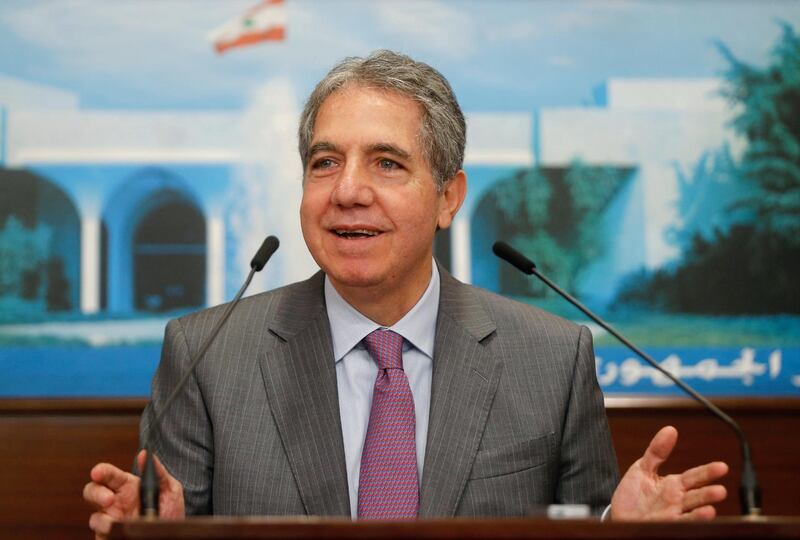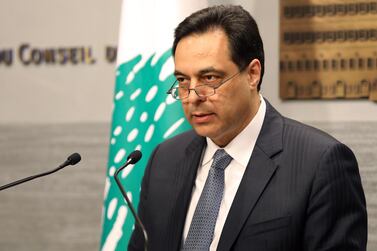Lebanon will present what it considers a conclusive economic and financial plan to the International Monetary Fund as it prepares for talks with creditors after missing a Eurobond payment, according to finance minister Ghazi Wazni.
If there is agreement on Lebanon’s plan “that includes no suffering or harsh measures to the Lebanese and doesn’t harm any side - whether in a political or non-political way - then doors will be open”, Mr Wazni told LBCI Television.
Lebanon is headed for the first default in its history as it copes with dwindling foreign-currency reserves and inflation running in double digits. It missed a $1.2 billion (Dh4.4bn) bond payment due on Monday and plans to set new terms with creditors. Fitch Ratings downgraded the nation’s debt to C from CC, saying that failure to make payment during the seven-day grace period will put the sovereign into “restricted default” and the specific bond into default.
Negotiations with creditors will give an indication in the coming days of whether Lebanon is headed for an organised or messy default, according to Mr Wazni. Hezbollah has said it doesn’t oppose external financing, he said.
Lebanon needs to secure a lifeline from the IMF to claw back the confidence in economic reform that creditors need when forgiving debt. Hezbollah, an Iran-backed group that has a major say in government and parliament, has previously rejected the possibility of seeking a financial aid programme from the fund, fearing it could hurt the poor and be used by the US as a political lever.
The central bank’s net reserves have been negative since 1997, Mr Wazni said. Including local lenders’ reserve requirements, reserves currently stand at $22bn, he said, and inflows are expected to decline sharply in 2020 and 2021.
“We think an IMF programme is inevitable,” Maya Senussi and Nafez Zouk, analysts at Oxford Economics, said in a report.
“Hezbollah’s resistance will evaporate once they realise the large costs required to restructure and recapitalise the banking sector and the economic pain that would be involved in meeting external financing needs without IMF loans.”







